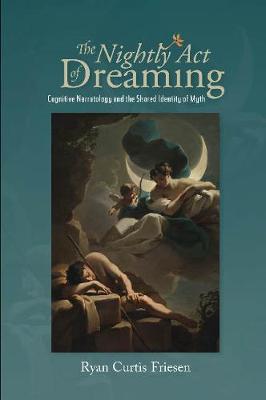The search for a shared practice of storytelling around which a popular study of cognitive narratology might form need look no further than our nightly experience of dreams. Dreams and memories are inseparable, complicating and building upon one another, reminding us that knowledge of ourselves based on our memories relies upon fictionalized narratives we create for ourselves. Psychologists refer to confabulation, the creation of false or distorted memories about oneself and the world we inhabit, albeit without any conscious intention to deceive. This process and narrative, inherent in the dreamlife of all people, is at odds with the daily menu of cultural myths and politicized fictions fed to the Western world through print and social media, and for which there is constant divisiveness and disagreement. Cognitive Narratology and the Shared Identity of Myth uses insights gained from the scientific study of dreaming to explain how the shared experience of dreamlife can work in service to the common good. Primary texts and literary works, chosen for their influence on contemporary thinking, provide a rationale and historical background: From Artemidorus (a professional diviner) and Aristotle; to the Church fathers Tertullian, St. Augustine, Gregory of Nyssa, Sinesius of Cyrene; to The Wanderer (Old English poem) and Chaucers Book of the Duchess; to Coleridges writings and R. L. Stevensons A Chapter on Dreams; and to twentieth-century dream theory, and dream use in film. The purpose is to enable readers through subjective self-analysis to recognize what they share with their fellow dreamers; shared identity in formation of a shared act of dreaming creation is a universal across centuries and throughout Western culture, albeit currently misrepresented and rarely acted upon.













